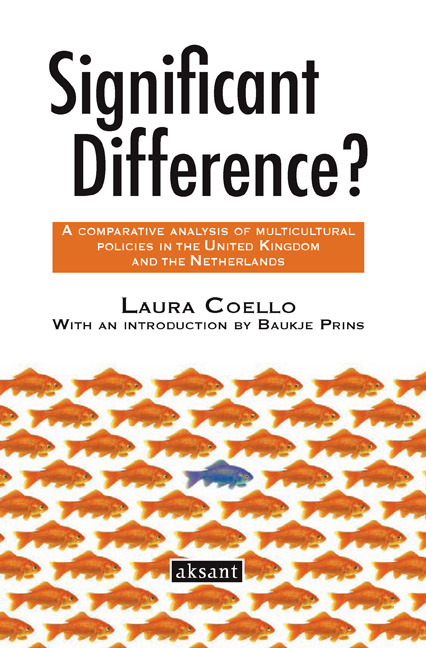3 - Multiculturalism in Practice
Published online by Cambridge University Press: 20 January 2021
Summary
The unions that resulted in the present day UK and the Netherlands have had, historically, weak nation-building projects. Nor during Empire did the governments of these countries aim at making their imperial subjects British or Dutch citizens. The heterogeneity of populations was acknowledged in their colonies. The choice of multiculturalism in these two countries, although “conditioned by distinct traditions and specific historical contexts”, could therefore be seen as natural.
Yet “Why did these countries adopt multiculturalism?” and “what goals were the governments of these countries seeking to achieve when doing so?” These questions will be explored in this section by focusing on two kinds of policies that are central to multiculturalism. Firstly anti-discrimination policies, which seek to address discriminative treatment of immigrants once in the country. Secondly, policies that help them access the labour market, which enhances their possibility to engage in the socio-economic system. The (assumed) interrelation between these two sets of policies, which suggests that a higher level of discrimination leads to fewer opportunities in the labour market, will also be part of this analysis. With this in mind, attention will be given to the points in time when anti-discrimination and labour market policies became part of the multiculturalism choice of each country.
Multiculturalism in practice: United Kingdom
The UK has a long tradition of dealing with diversity. Since the 1800s, the UK has “had a clear and politic sense of diversity (…). In India too they came to practise a politics of cultural tolerance, not assimilation; indirect rule, not administrative centralism”. During Empire and after the Second World War, 800 million British subjects could claim the right of entry, settlement and work in Britain, but the stagnant economic realities of the 1950s meant that support for the entry of “coloured” colonial subjects diminished. With the Notting Hill riots of 1958, the ideal of civis Britannicus sum became decreasingly justifiable. As a result, the Commonwealth Immigrants Act of 1962 and the Immigration Act of 1971 made it increasingly difficult for (former) subjects to enter the country.
- Type
- Chapter
- Information
- Significant Difference? , pp. 27 - 46Publisher: Amsterdam University PressPrint publication year: 2010

